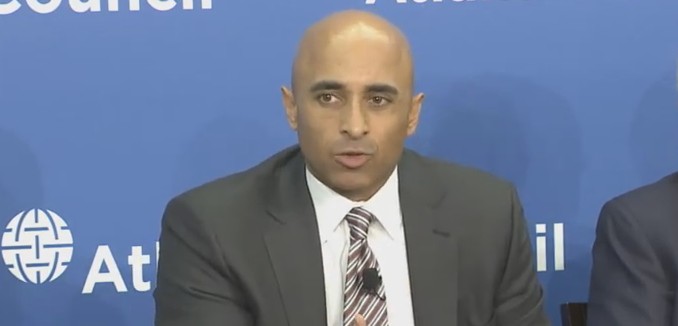One year after Iran and world powers announced the framework for the nuclear deal, “the Iran we have long known—hostile, expansionist, violent—is alive and well, and as dangerous as ever,” Yousef al-Otaiba, the United Arab Emirates’ ambassador to the United States, wrote in an op-ed published Monday in The Wall Street Journal.
The UAE would have much to gain from peaceful relations with Iran, including “[restoration] of full trade ties, energy cooperation and cultural exchanges, and [starting] a process to resolve a 45-year territorial dispute,” wrote al-Otaiba.
However, since the nuclear deal, “Iran has only doubled down on its posturing and provocations,” the ambassador argued.
Al-Otaiba cataloged many of Iran’s recent destabilizing actions in the Middle East, including its ballistic missile tests in October, November, and March; its capture of American sailors in January; its proposal to buy $8 billion worth of arms from Russia; its weapons shipments to Houthi rebels in Yemen; and its arming of terrorist cells in both Bahrain and Saudi Arabia.
He observed that all of these activities are “clear reminders that Iran remains the world’s leading state sponsor of terrorism.” Yet Iran isn’t just a threat to its neighbors, al-Otaiba noted, but also a threat to the United States:
“Death to America” has always been more than an ugly catchphrase; it has been Iranian policy. Iran has orchestrated countless terrorist attacks against Americans: from the Marine barracks in Beirut to Khobar Towers in Saudi Arabia. During the Afghanistan war, Iran paid Taliban fighters $1,000 for each American they killed.
In Iraq, Iran supplied the improvised explosive devices (IEDs) that killed or maimed thousands of U.S. soldiers. And in recent weeks seven Iranian hackers were indicted in a U.S. federal court for a cyberattack against U.S. banks and critical infrastructure.
Observing that Iran sees the nuclear deal “as an opportunity to increase hostilities in the region,” al-Otaiba called on the international community to “shine a bright light on Iran’s hostile acts across the region.” The ambassador specifically called on the U.S., U.A.E., Saudi Arabia, Qatar, Kuwait, Bahrain, and Oman to establish a mechanism “to monitor, expose and curb Iran’s aggression” at a planned Gulf Cooperation Council (GCC) summit later this month. He added that if incentives fail to curb Iran’s ambitions, “the U.S. and the global community should make clear that Iran will face the full range of sanctions and other steps still available under U.N. resolutions and in the nuclear deal itself.”
The GCC designated the Iranian proxy Hezbollah a terrorist group last month.
Numerous experts — including Foreign Policy editor David Rothkopf, former State Department official Aaron David Miller, Washington Institute of Near East Policy fellows Mehdi Khalaji, Soner Cagaptay and James Jeffrey, and former Secretaries of State Henry Kissinger and George Shultz — warned last year that the nuclear deal would stoke Iran’s regional ambitions rather than moderate its behavior.
[Photo: AtlanticCouncil / YouTube ]




